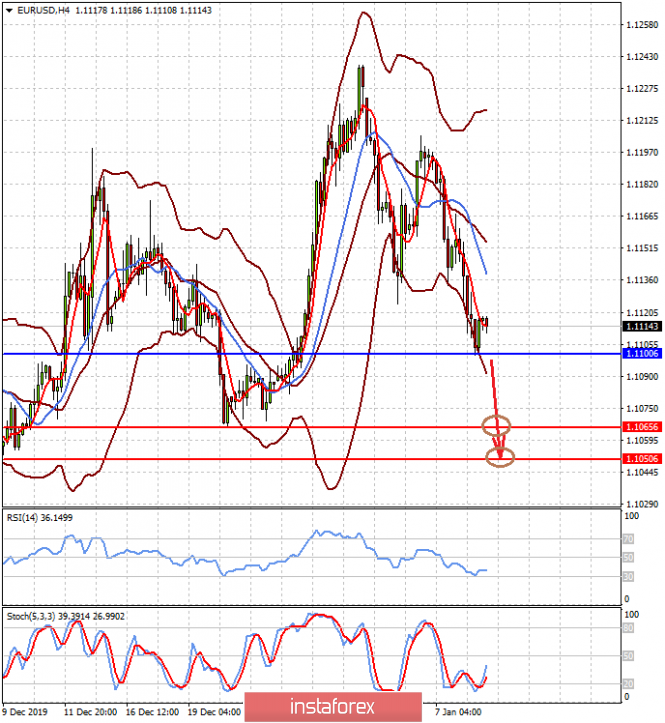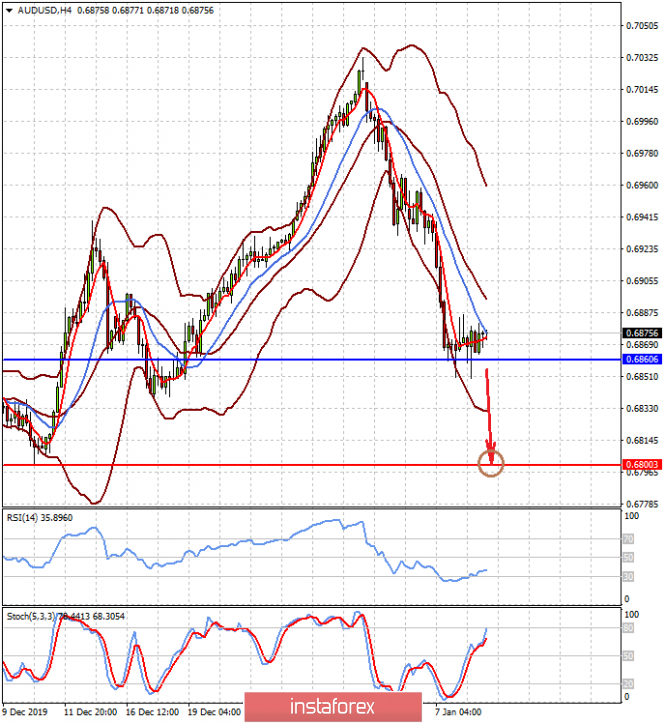After the United States launched a missile strike at the end of last week, which killed a prominent Iranian military commander, Q. Soleimani, protective assets began to be in sharp demand on global markets, as investors began to fear Tehran's retaliatory measures, which could lead to new attacks by America and the general escalation of the conflict.
Over the past three days, the tension has only increased, and when Iran responded to Washington by firing at an American military base and airfield on Iraqi territory on Tuesday, Trump very pathetically announced on Wednesday that the United States will respond to this only by increasing sanctions pressure. Thus, the tension in world markets has subsided and resulted in a rather noticeable increase in demand for risky assets. On this wave, the price of the "yellow" metal went down after a sharp increase, while the yen, and the Swiss franc also responded synchronously by lowering quotes, which were accompanied by an increase in the yield of American treasuries.
In fact, by observing what is happening around the conflict between Tehran and Washington, we can say that the United States and Iran, despite hawkish rhetoric, show miracles of caution so as not to overcome certain "red lines" behind which there are already real large-scale military operations. Unfortunately, these events have a direct impact on the dynamics of financial markets in general and the currency exchange market in particular. We believe that market volatility will be characterized by high volatility despite a slight decrease in tension, which led to the appreciation of the US dollar and a landslide drop in crude oil prices, which fell by more than 5.0% at the time. In turn, investors will, of course, respond to important economic data published, such as US employment figures this Friday, but will still consider them again through the prism of middle Eastern events that have not yet ended, with limited response.
Unfortunately, the US foreign policy, which is a continuation of the domestic one against the background of the presidential election campaign, will destabilize not only the Middle East, but also other regions of the world. For example, Latin America, which will fully influence financial markets. This state of affairs is likely to lead to a continuation of the general lateral dynamics in the main currency pairs with sharp shots, then up or down.
At the same time, it seems that commodity and commodity currencies will receive overall support in the short term in the wake of the signing of the US-China trade agreement, but will also fully respond to news from the Middle East, which will force quotes of crude oil to rise or fall. Sterling, like the Euro currency, seems to be moving in a "sideways" in anticipation of an end to Brexit on January 31. Shelter currencies - the yen and the franc, as well as gold - will remain hostages to tension or its decline both in the Middle East and around Britain's exit from the EU. In general, we continue to expect new "acrobatic political somersaults" from D. Trump, who will keep the markets in good shape.
Forecast of the day:
EUR/USD is under pressure, but still remains in a short-term upward trend. Thus, the price is likely to break the level of 1.1100 and rush to 1.1065 and even lower to 1.1050, if US employment data is strong on Friday.
The AUD/USD pair "lies" above the support level of 0.6860. The breakdown of which will lead to its local decline to 0.6800.


